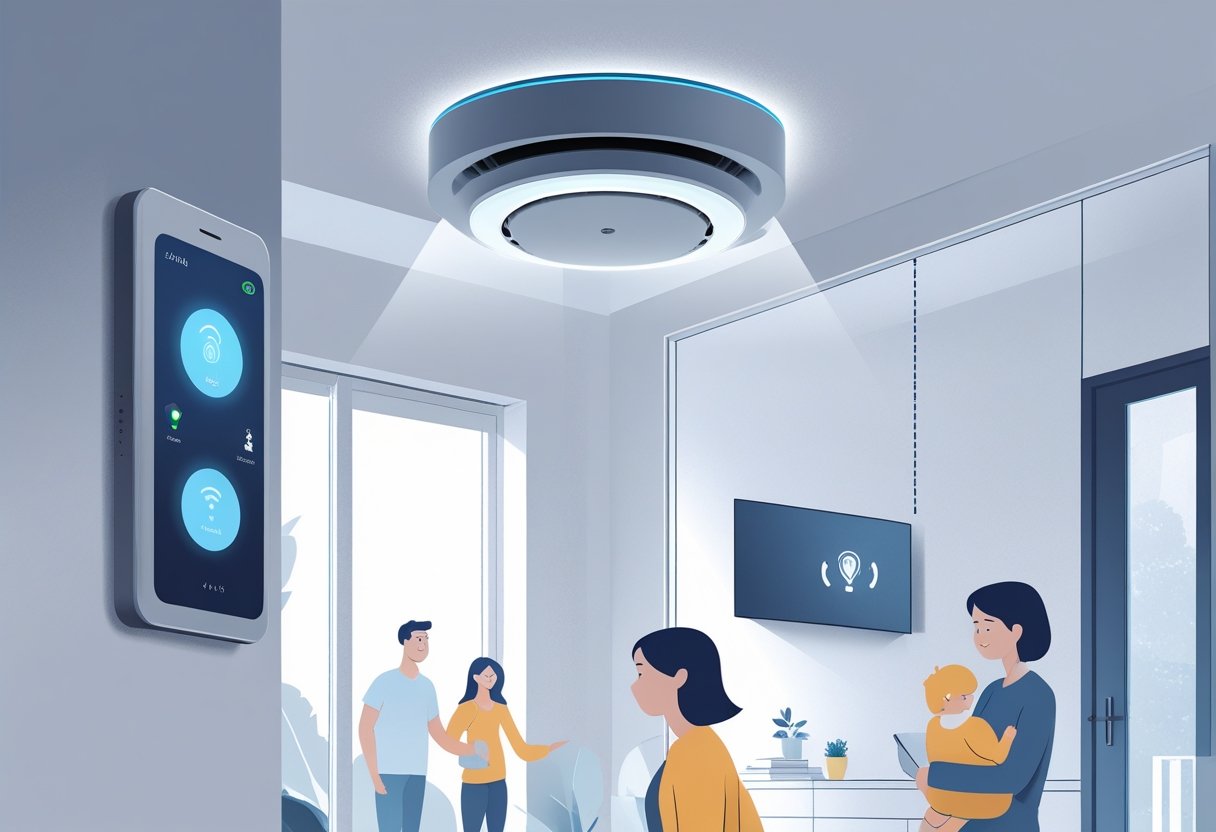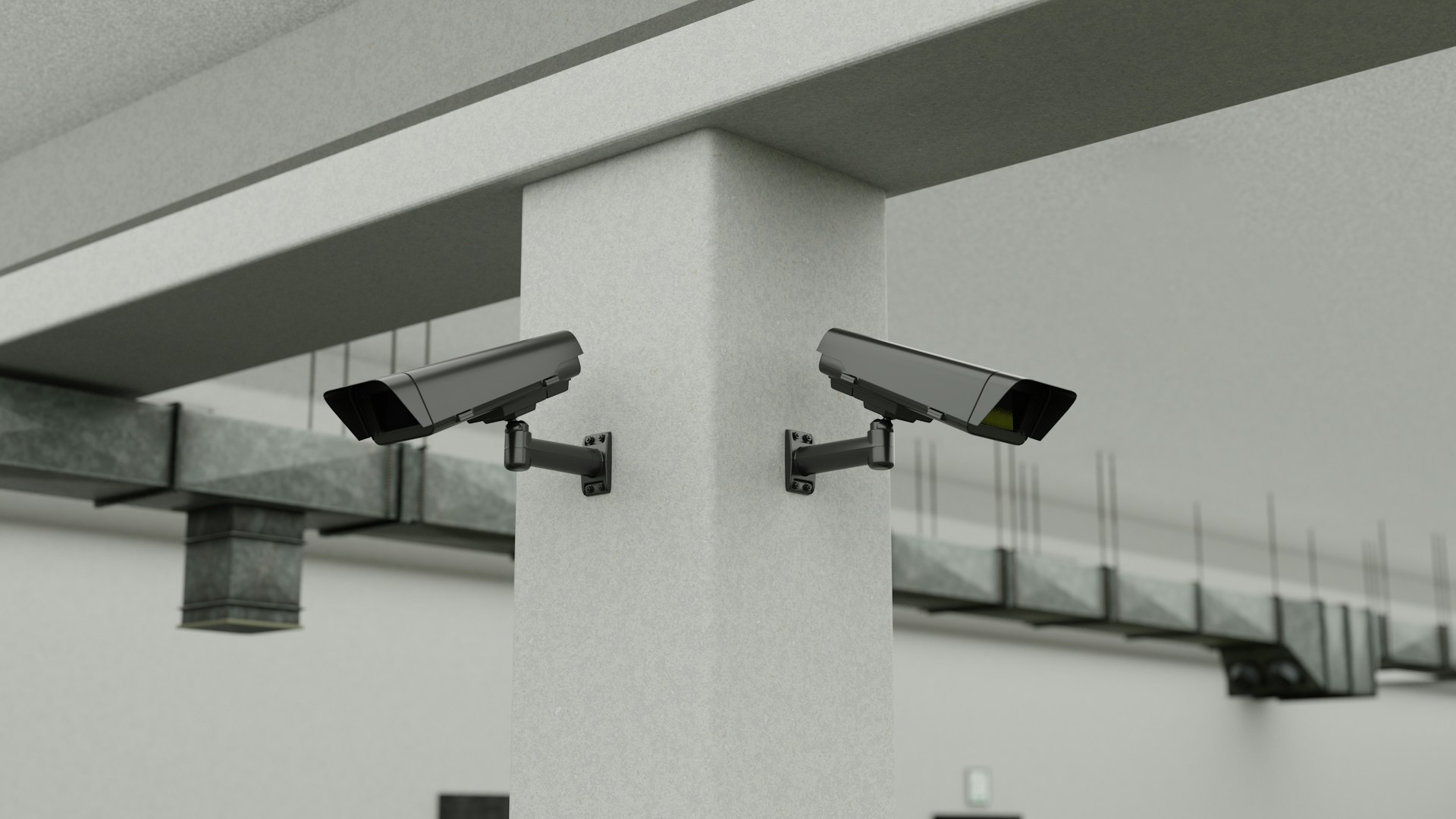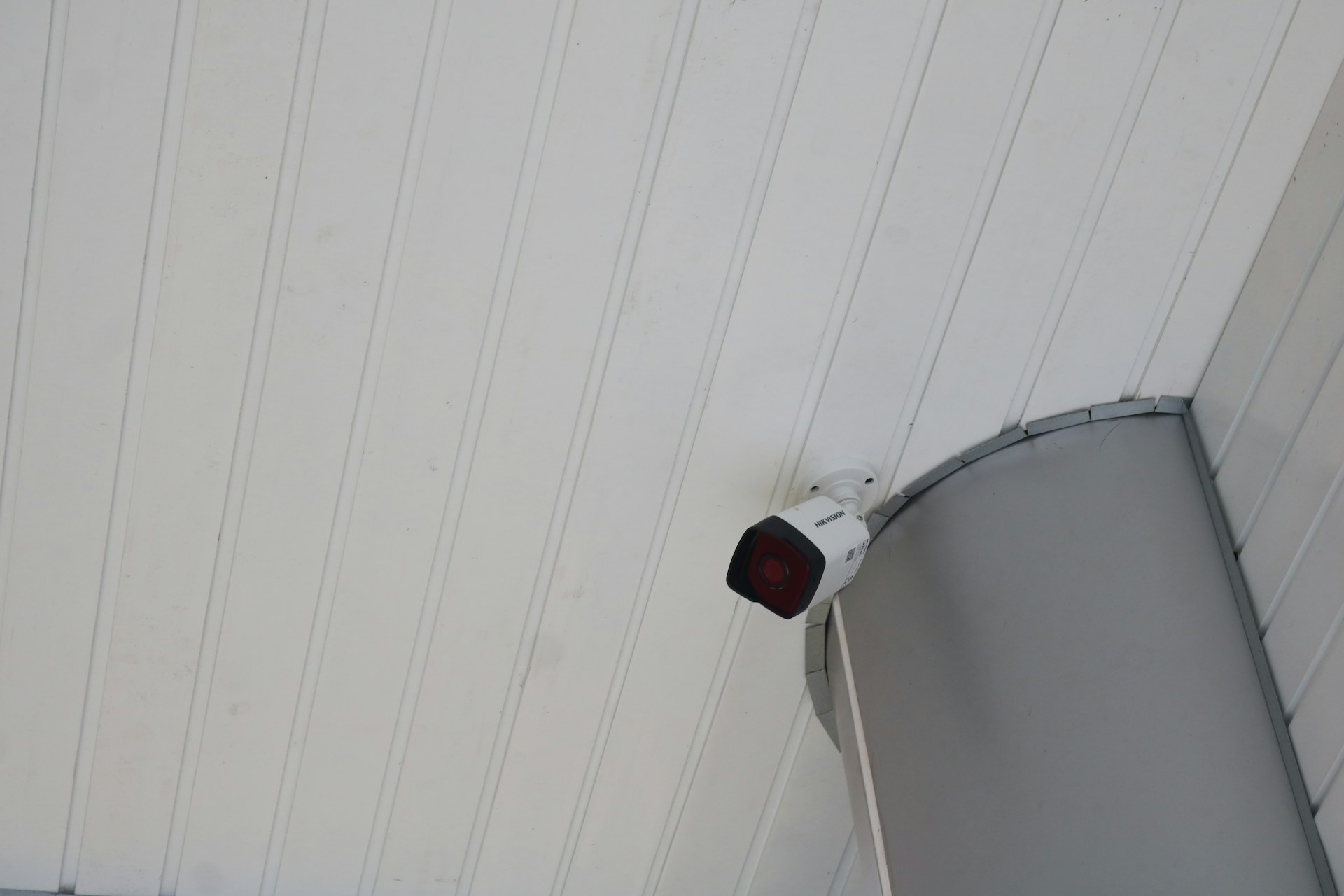When it comes to protecting your home, a monitored fire alarm system is one of the most effective measures you can take. These systems provide 24/7 surveillance and immediate responses to smoke or fire detection, ensuring that emergency services are alerted without delay. Investing in a monitored alarm not only safeguards your property but also gives you peace of mind knowing that your home is continuously monitored.
In the greater Houston area, the advantages of having a professional monitoring service are significant. Unlike standard smoke detectors, monitored systems alert a central station that can dispatch help while you focus on evacuating your family. You'll have the assurance that trained professionals are always ready to respond, even when you're not at home.
Choosing the right monitoring system tailored to your needs can make all the difference. With advanced technology and dedicated support, you can enhance the safety of your residence and protect what matters most.
What Are Monitored Fire Alarm Systems for Homes?
Monitored fire alarm systems provide enhanced safety for your home by connecting directly to a central monitoring station. This ensures that any alerts trigger an immediate response from emergency services, offering peace of mind and protection 24/7.
Comparison With Standalone Smoke Alarms
Standalone smoke alarms are designed to alert occupants within the premises. They sound an alarm when smoke is detected but lack connectivity to external services. In contrast, monitored fire alarm systems connect to a central monitoring station, allowing for a faster response to emergencies.
While standalone alarms might notify you of a fire, they require someone to take action. Monitored systems go further by automatically contacting emergency services, even if no one is home. This crucial difference can be lifesaving, especially in homes with vulnerable occupants.
Role of Central Monitoring Stations
The central monitoring station serves as the heart of a monitored fire alarm system. When smoke or heat is detected, the system sends an alert to the station. Trained professionals then assess the situation and dispatch firefighters if necessary.
This uninterrupted monitoring is significant, especially for those who may not be able to respond quickly. Central stations operate 24/7, ensuring that there is always a reliable response team ready to act. Homeowners in the greater Houston area benefit from this constant oversight, enhancing the overall safety of their property.
Benefits Over Unmonitored Systems
Monitored fire alarms offer several advantages over unmonitored systems. Primarily, they provide instant communication with emergency services, which is critical in a time-sensitive situation. While unmonitored alarms may cause delays in response due to occupants needing to call for help themselves, monitored systems eliminate this gap.
Additionally, monitored systems can reduce insurance premiums, as many insurance companies recognize their enhanced safety features. They help safeguard lives and property, making them an ideal choice for households looking for comprehensive protection against fire hazards. With the unique benefits they provide, monitored fire alarm systems stand out as essential for homeowners seeking effective fire safety solutions.
Core Components of a Monitored Home Fire Alarm System
A monitored home fire alarm system integrates several essential components to ensure comprehensive fire detection and safety. Understanding these components is vital to maintain the integrity of your home’s safety measures.
Smoke Detectors and Their Types
Smoke detectors are critical in any fire alarm system, as they alert you to smoke presence, a key indicator of fire. There are two main types: ionization smoke detectors and photoelectric smoke detectors.
- Ionization smoke detectors are more responsive to fast-burning fires, making them suitable for areas with combustibles.
- Photoelectric smoke detectors are better at detecting slow smoldering fires, which often produce more smoke before flames appear.
By incorporating a mix of these detectors, you enhance your home’s smoke detection capabilities, ensuring faster alerts regardless of the fire type.
Heat Detectors in Fire Safety
Heat detectors complement smoke detectors by triggering alerts based on temperature changes, making them valuable in spaces where smoke detectors may not be ideal, like kitchens.
There are two common types: rate-of-rise heat detectors and fixed temperature heat detectors.
- Rate-of-rise heat detectors activate when they detect a rapid increase in temperature, useful for catching fires early.
- Fixed temperature heat detectors sound an alarm when a predetermined temperature is reached, suitable for more stable environments.
Using heat detectors alongside smoke alarms provides a multi-layered approach to fire detection, offering you additional peace of mind.
Carbon Monoxide Detectors Integration
Integrating carbon monoxide detectors into your fire alarm system is crucial for comprehensive safety. Carbon monoxide is a silent, odorless gas that can be lethal.
These detectors monitor levels of carbon monoxide in your home and alert you before they reach dangerous levels.
When combined with smoke and heat detectors, they create a complete safety strategy, ensuring you are informed of both fire and carbon monoxide threats. In Houston, it's essential to consider the particular risks associated with both fires and carbon monoxide, making this integration a wise choice for your safety system.
How Monitored Fire Alarm Systems Work in Homes
Monitored fire alarm systems are designed to provide homeowners with advanced protection and rapid response capabilities. Understanding how these systems operate can enhance your safety and security.
Alarm Signal Transmission Methods
Monitored fire alarm systems utilize several methods for transmitting alarm signals. Typically, they can send alerts via hardwired connections, broadband Internet, or cellular networks.
When a fire is detected, the system immediately triggers an alarm, sending a signal to the central monitoring station. This prompt communication ensures that help can be dispatched quickly.
In some cases, these systems may integrate with fire detection systems that include smoke detectors and heat sensors. This integration enhances accuracy in identifying fire threats and reduces false alarms.
24/7 Professional Monitoring Process
One of the key features of a monitored fire alarm system is the 24/7 professional monitoring service. Once an alarm signal is received, trained operators assess the situation.
They follow predetermined protocols to determine whether to dispatch emergency services. This can include contacting the local fire department or verifying the alarm with you, if possible.
This professional oversight ensures that help is always available, even when you’re away from home. Immediate action can significantly minimize damage and protect lives.
Cellular Backup for System Reliability
Cellular backup is a critical component of a reliable monitored fire alarm system. In cases where landline or Internet connections are disrupted, the cellular component maintains communication with the central monitoring station.
This redundancy ensures that signals are transmitted without interruption. If a fire alarm is activated, help can still be summoned, regardless of any failures in other systems.
This feature is especially important in the greater Houston area, where stormy weather can affect other communication methods. Having cellular backup contributes to your home’s overall safety and reliability.
Advantages of Monitored Fire Alarm Systems for Homeowners
Monitored fire alarm systems provide essential benefits that significantly enhance home safety and security. They offer early detection of potential fires, ensuring rapid emergency response, which is crucial for protecting lives and property. Additionally, these systems contribute to peace of mind for homeowners and may provide financial advantages through insurance benefits.
Early Detection and Rapid Emergency Response
One of the primary advantages of a monitored fire alarm system is its ability to detect fires early. These systems use advanced sensors that can identify smoke or heat before flames spread.
Once a fire is detected, the system immediately contacts a 24/7 monitoring center. This prompt action ensures that emergency services are dispatched without delay, increasing the chances of a successful rescue. According to the National Fire Protection Association, swift responses are vital in reducing fire deaths and damage.
By having a monitored system, you benefit from consistent surveillance and quick action, which are critical in emergency scenarios. This is particularly important in the greater Houston area, where fast-moving fires can pose a significant threat.
Peace of Mind Whether Home or Away
With a monitored fire alarm system, you can enjoy peace of mind whether you're at home or away. Knowing that your home is continuously monitored means you do not have to worry about being alerted to a fire on your own.
Whether you are at work, traveling, or running errands, your monitored system will notify emergency responders in case of a fire. This feature is especially comforting for families with children or elderly relatives, as it ensures help will arrive swiftly.
The presence of a monitored system also acts as a deterrent to potential intruders, adding an extra layer of safety. With a reliable fire protection system in place, you can feel assured that your loved ones are protected, regardless of your physical presence.
Insurance Benefits and Compliance
Investing in a monitored fire alarm system can lead to reduced insurance premiums. Many insurance companies offer discounts for homes equipped with monitored systems, recognizing the lower risk of fire damage.
This not only saves you money but also shows you are proactive in ensuring safety, which insurers favor. Additionally, having a monitored fire alarm system may help you comply with local safety regulations, further ensuring your home meets necessary fire protection standards.
In the greater Houston area, where fire risks are heightened, these benefits are crucial for responsible homeownership. Protect your property while also securing financial advantages by prioritizing a monitored fire alarm system.
Installation, Maintenance, and Best Practices
Proper installation and ongoing maintenance of monitored fire alarm systems are crucial for ensuring the safety of your home. Following best practices can significantly enhance the reliability and effectiveness of these systems.
Professional vs. DIY Installation
Choosing between professional installation and a DIY approach is an essential decision. While some homeowners may feel confident in their ability to install a fire alarm system themselves, it is highly recommended to hire a qualified technician.
Professionals understand the specific requirements set by the National Fire Protection Association (NFPA) and local safety codes. They conduct assessments to determine the best system configuration, ensuring optimal coverage throughout your home.
Here are some points to consider:
- Expertise: Professionals bring experience and knowledge about different systems.
- Warranty Compliance: Many manufacturers require professional installation for warranty validity.
- Complex Systems: Addressable fire alarm systems need precise installation to function correctly.
Routine System Testing and Upkeep
Routine testing and maintenance are vital for keeping your fire alarm system operational. Regular inspections help detect issues that could impair the system's functionality.
You should perform the following tasks:
- Monthly Testing: Test each alarm to confirm they sound and respond appropriately.
- Annual Professional Inspections: Schedule annual check-ups with a certified technician to ensure compliance with NFPA standards.
- Battery Replacement: Replace batteries in smoke detectors as recommended, usually every six months.
Failure to maintain your system can result in malfunction when it matters most. Staying proactive helps protect your home and loved ones.
Compliance With Safety Standards
Ensuring compliance with safety standards is not just a legal requirement; it's essential for your safety. Follow guidelines set by the NFPA and local authorities.
Key points to consider:
- BS 5839 Standards: Familiarize yourself with these British Standards which cover installation and maintenance of fire detection systems.
- Documentation: Keep detailed records of inspections, maintenance, and any system upgrades. This documentation can be vital in case of an emergency.
- Codes and Regulations: Stay updated on local fire codes, as they may differ based on your area in Houston.
Compliance not only minimizes risks but also enhances the effectiveness of your fire alarm system, reinforcing home security.
Comparing Residential and Commercial Fire Protection Solutions
Understanding the nuances between residential and commercial fire protection can help you make informed decisions about which system best fits your needs. Both types have unique requirements and capabilities that impact their effectiveness in different environments.
Key Differences in System Requirements
Residential fire alarm systems are typically simpler than commercial systems. They often focus on providing basic alerts through smoke detectors and alarms that sound within the home.
Commercial fire protection, on the other hand, requires more comprehensive solutions. These systems may integrate with building management systems and include multiple alarm zones for large spaces. Features such as 24/7 monitoring, video surveillance integration, and automated reporting are common in commercial settings.
Additionally, commercial systems must adhere to stricter regulations and codes, which can affect equipment selection and installation. This ensures a higher level of safety in environments where many people gather.
Adapting Commercial Features for Homes
While residential systems are essential for safety, you might consider incorporating some commercial features into your home protection strategy. For example, integration with smart home technology allows for remote monitoring and control of your fire alarm system.
You could also benefit from features like audio commands and visual alerts found in commercial systems. These enhancements make the alarm system more intuitive, especially for households with children or elderly residents.
Another option is monitored services, which provide real-time alerts to emergency responders. This additional layer of protection can be particularly valuable in larger homes or those located in areas with longer response times.
By evaluating these differences and adaptations, you can tailor a fire protection solution that meets your specific needs effectively.
Frequently Asked Questions
When considering a monitored fire alarm system for your home, you might have several questions. This section will address common inquiries regarding benefits, functionality, costs, installation, and differences between residential and commercial services.
What are the benefits of having a monitored fire alarm system in my home?
Monitored fire alarm systems provide immediate alerts to both you and emergency services in the event of a fire. This rapid response can significantly reduce fire damage and increase the chances of safety for your household.
Additionally, many insurers offer discounts on homeowners' insurance premiums for homes equipped with monitored systems, providing a financial incentive along with enhanced safety.
How does a residential fire alarm monitoring service work?
A residential fire alarm monitoring service continuously supervises your fire alarm system. When a smoke detector or other sensor is triggered, the monitoring service receives an alert.
They then promptly notify local fire authorities, ensuring a faster response time. This service operates 24/7, providing peace of mind even when you are not at home.
What factors influence the cost of fire alarm monitoring services?
The cost of fire alarm monitoring services can vary based on several factors. These include the type and number of devices in your system, the features of the monitoring service, and any associated installation costs.
Additionally, ongoing service fees may differ based on the level of monitoring you choose, such as basic or advanced emergency response features.
Can I install a monitored fire alarm system myself, or do I need a professional service?
While some monitored systems offer DIY installation options, hiring a professional service is often recommended. Professionals ensure that the system is installed correctly and complies with local safety codes.
By utilizing expert installation, you reduce the risk of system failures that can occur due to improper setup.
What should I look for when choosing a fire alarm monitoring company?
When selecting a fire alarm monitoring company, consider their reputation, response time, and the range of services offered. Look for companies that provide 24/7 monitoring and have positive customer reviews.
Additionally, ensure they are licensed and familiar with the fire codes specific to the greater Houston area.
How do monitored fire alarm systems for homes differ from commercial monitoring services?
Monitored fire alarm systems for homes typically cater to residential needs, focusing on family safety and property protection. In contrast, commercial monitoring services often address more extensive systems with added regulatory compliance requirements.
Commercial systems may include more complex networks of sensors, alarms, and interconnectivity tailored to larger buildings and diverse risks.
.svg)



.svg)


.svg)



